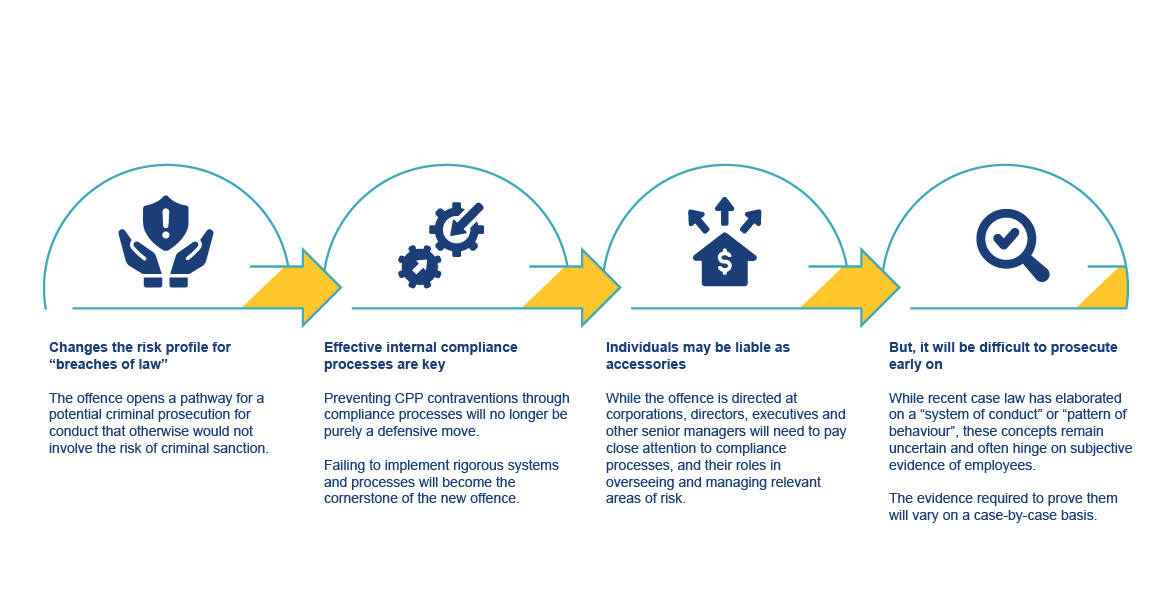Stay in the know
We’ll send you the latest insights and briefings tailored to your needs
In this briefing we provide a breakdown of what a new “system of conduct” offence could involve and our initial views on implications for corporations in Australia
Earlier this year we published a report on the implications of the ALRC’s Final Report on Corporate Criminal Responsibility. In the Final Report, the ALRC made a number of recommendations for reform, including to address what it identified as an over-proliferation of Commonwealth offences applicable to corporations and to ensure that criminal sanctions are reserved for the most egregious corporate misconduct.
One of the more novel recommendations made by the ALRC concerned the introduction of a new offence for engaging in conduct that constitutes a “system of conduct” or “pattern of behaviour” that results in repeated civil penalty provision (CPP) contraventions.
This recommendation reflects a view that organisational fault is closely tied to an organisation’s systems, “group think”, collective behaviours and decision making at an organisational level.
It also seeks to deter misconduct that might otherwise be viewed by contravening corporations as a “cost of doing business” by signalling that repeated or systemic breaches of CPPs should be treated more seriously – criminally – to ensure that they are addressed early and/or avoided.
In this briefing we provide a breakdown of what a new “system of conduct” offence could involve and our initial views on implications for corporations in Australia.
Much of the detail will need to be developed if there is government support for the recommendation. If the offences were implemented in the broad way articulated by the ALRC, some of the implications will be:

The contents of this publication are for reference purposes only and may not be current as at the date of accessing this publication. They do not constitute legal advice and should not be relied upon as such. Specific legal advice about your specific circumstances should always be sought separately before taking any action based on this publication.
© Herbert Smith Freehills 2024
We’ll send you the latest insights and briefings tailored to your needs